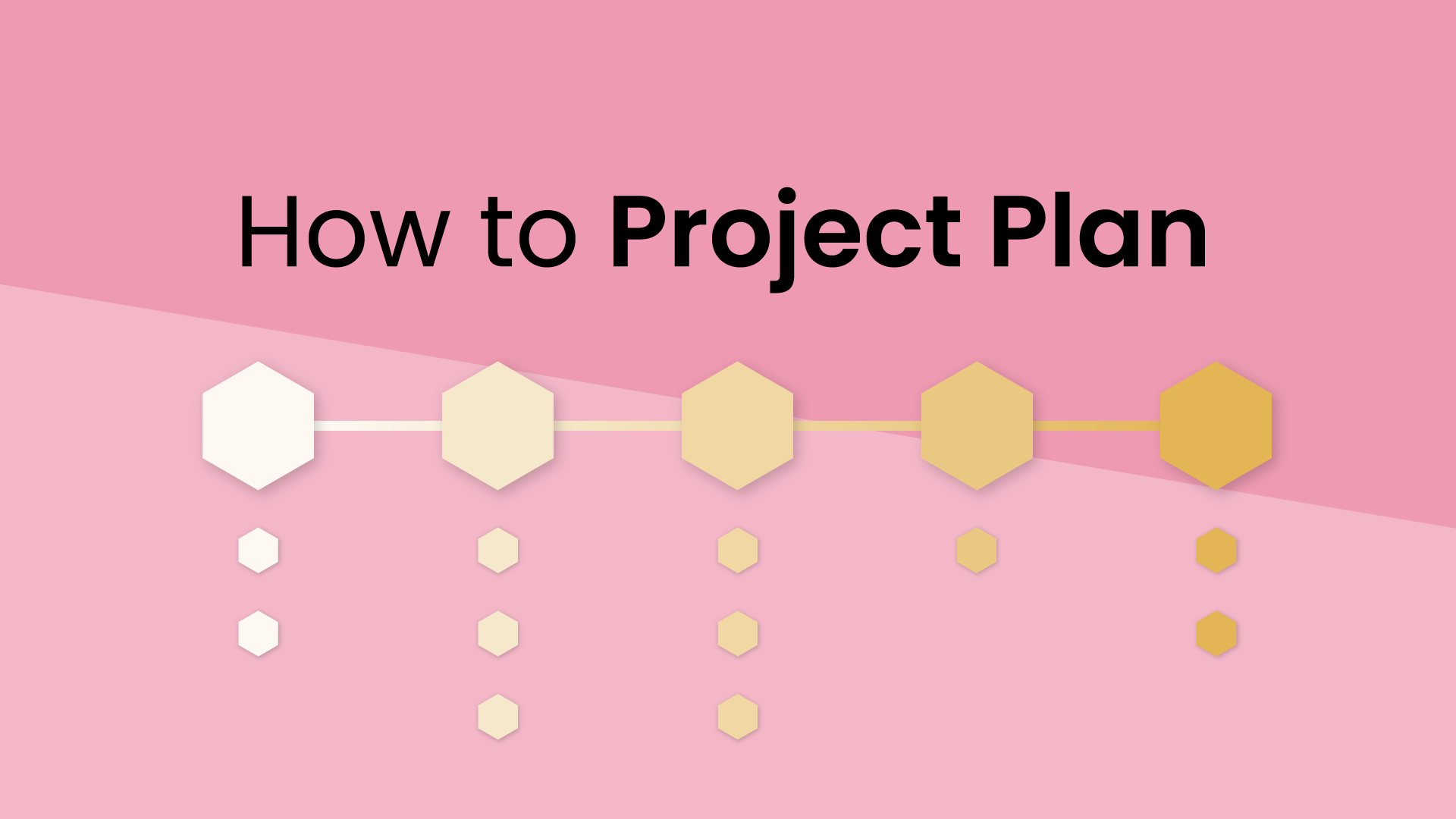

Everyone's a dreamer – but not everyone has a dream life. There are, of course, countless reasons this could be the case. But a lack of self-discipline is undoubtedly one of them.
Self-discipline helps you reach your goals, build healthy habits, and live a meaningful life. It's not about being restrictive; it's about taking control of your actions to create the life you want.
This one-stop guide has everything you need to develop self-discipline. Want to jump to the good stuff? How to be disciplined in 20 steps:
How to be disciplined in 20 steps:
- Have a positive self-identity
- Develop self-awareness
- Master the fundamentals: sleep, nutrition, exercise
- Lean into discomfort
- Improve focus with meditation
- Set high standards (be realistic)
- Define clear goals
- Build new habits
- Limit quick pleasures & unhealthy vices
- Develop & stick to a routine
- Show self-compassion
- Just do it
- Make your bed
- Improve your time management skills
- Mental contrasting
- Implementation intentions
- Optimize your environment
- Monitor & track your progress
- Reward yourself
- Harness the power of "no"
What is discipline?
Discipline. The word itself might conjure up images of strict rules, rigid routines, and even a drill sergeant barking orders. But true discipline is more nuanced than its stern reputation suggests.
Discipline is the ability to consciously direct your thoughts, emotions, and actions towards your desired outcomes. It means making choices that match your values and goals, even when faced with and despite distractions, temptations, or instant gratification.
Still, discipline takes many shapes. There are different expressions and they each contribute to a balanced life in various ways:
- Mental discipline: This is the ability to focus your mind, resist distractions, and maintain concentration on a task or goal. With mental discipline, you stay present with a challenging project, absorb information effectively, and make clear-headed decisions.
- Emotional discipline: This involves mastering your emotions, regulating your responses, and avoiding impulsive reactions. Emotional discipline allows you to stay calm under pressure, respond thoughtfully rather than reactively, and cultivate emotional resilience in the face of setbacks.
- Behavioral discipline: This is the ability to control your actions and behaviors, even when motivation wanes or you "just don't feel like it." That means showing up consistently, honoring your commitments, and taking the necessary steps to achieve your goals, regardless of your fleeting feelings of motivation (or lack thereof).
Ultimately, discipline is training yourself to do what needs to be done, even when you don't want to.
What's the difference between discipline & motivation?
People often think of 'discipline' and 'motivation' as interchangeable. Two different ways of expressing the same sort of thing. But, that's not really the case.
- Motivation: Motivation is a spark – it ignites the fire and gets you started. It's often fueled by external factors like rewards, deadlines, or the excitement of a new challenge. Sometimes it comes from within, inspired by a compelling vision or a surge of passion. But like any spark, motivation can be fleeting. It flickers and fades, especially when faced with obstacles or the monotony of the everyday grind.
- Discipline: Discipline is the steady flame that keeps burning even when the wind blows. It's the inner strength that allows you to persevere when motivation wanes, when you're tired, or when you simply "don't feel like it." To have strong self-discipline means showing up and doing the work, regardless of your emotional state. It's the commitment to keep moving forward, one step at a time, even when the path is challenging.

While motivation can be a helpful starting point, relying solely on it is like building a house on sand. Discipline, however, provides a solid foundation for lasting change. To achieve self-discipline means you consistently show up for yourself and your goals, even when that initial excitement fizzles out.
Benefits of developing self discipline
Self-discipline isn't about forcing yourself to do things you hate, it's about building a life you love. Cultivating discipline can offer a wealth of benefits that extend far beyond simply achieving goals.
- Achieve your dreams: Discipline provides the framework for turning dreams into reality, even in the face of challenges.
- Boost your well-being: Discipline lowers your stress, anxiety, and depression, while building greater resilience to adversity.
- Strengthen your relationships: Discipline strengthens the bonds that connect you to others.
- Increase your self-esteem: Each time you overcome a challenge or achieve a goal through discipline, you reinforce a powerful message: "I am capable."
- Live a more fulfilling life: Self-discipline allows you to create a life true to yourself, one in which you reach your goals and feel fulfilled.
How to be disciplined: a step-by-step guide
Building self-discipline isn't easy, but it's possible for everyone. This step-by-step guide will show you how.
1. Start with your identity
If you think you lack discipline, you're more likely to act that way. The first step to becoming self-disciplined is to change your self-perception, and that starts with the way you describe yourself:
- Don’t say: I'm trying to become someone who reads more.
- Say: I'm a bookworm aiming to read even more.
As you can see, the former suggests you don’t already have the desire and skills to get there. When you change how you see yourself, it becomes easier to act in ways that match that new identity. In this case, by seeing yourself as a reader, you naturally start reading more and more, – your goal all along. Fake it ‘till you make it, as they say.
Affirmations are also helpful to visualize and reinforce positive beliefs about your discipline, and surrounding yourself with people who already embody discipline can be great inspiration to help you build these new habits.
2. Develop self-awareness
As Socrates once said, “To know thyself is the beginning of wisdom.” Making better choices often relies on avoiding the thoughts, feelings, and behaviors that throw you off track. Maybe it's social media when you should be working, snacking when you're trying to eat healthy, or hitting snooze instead of hitting the gym. Know your triggers, and make note of the next time your self-sabotaging behaviors rear their ugly head:
- What were you doing?
- What were you feeling?
- What thoughts were running through your mind?
Beyond obvious triggers, there might be deeper patterns in your thinking. Do you tend to overreact to setbacks? Do big tasks overwhelm you? Do you sabotage yourself when you're close to success?
Once you know your patterns, you can start changing how you think about things, be kinder to yourself, or get help from a therapist or coach. And instead of trying to change everything for yourself at once, try making small, consistent adjustments to improve your discipline.
3. Master the fundamentals
You wouldn't start building a house over crumbling grounds, would you? The same can be said of self-discipline – you need a rock-solid foundation.
There are three fundamentals of self-discipline: sleep, nutrition, and exercise. These are the building blocks of a disciplined life that require consistent effort and commitment.
Sleep: Sleep deprivation sabotages your self-control. When you don't get enough sleep, your brain can't function properly, making it harder to resist temptations, make good decisions, and manage your emotions effectively. Try going to bed and waking up around the same time each day (even on weekends) to regulate your body's natural sleep-wake cycle.
Food: Your brain and body need fuel to stay disciplined, and nutritious food is the best ingredient to keep you focused and in control. Processed foods and sugary snacks drain your energy and make it harder to resist temptation. Eat whole foods, ditch the processed stuff, and stay hydrated.
Exercise: Exercise is a fantastic way to build self-discipline, but it can be the hardest of the three fundamentals to master. It requires effort and consistency, but the payoff is huge. Sticking to a workout routine is critical for your physical health, but it also strengthens your willpower and improves your ability to stay disciplined in all areas of your life.
4. Lean into discomfort
What's the real reason you're not as disciplined as you'd like to be? It's not a lack of motivation, it's an addiction to comfort.
The War of Art book calls this force "Resistance" – it's the self-doubt and fear that tries to hold us back from achieving our goals. Disciplined people often do things that are uncomfortable or even painful, pushing themselves beyond their comfort zone, even when they don't feel like it.
Every time you choose the harder path, you're building your self-discipline. It's as if you’re working out a muscle – the more you use it, the stronger it gets. Deep inside your brain, there's an anterior midcingulate cortex (aMCC) that controls your willpower. Studies show that it actually gets bigger and stronger the more you use it! So every time you resist temptation or push yourself to do something hard, you're literally strengthening that part of your brain.
So how can you "lean into discomfort" and strengthen your aMCC? Here are a few ideas:
- Take cold showers: Start your day with a jolt of cold water. It's uncomfortable at first, but it's a great way to train your mind to embrace discomfort.
- Wake up early: Even if you're not a morning person, try waking up a little earlier than usual. This small act of discipline can set a positive tone for the day.
- Complete challenging tasks: Don't shy away from difficult tasks. Break them down into smaller steps and tackle them one by one.
- Delay gratification: Resist the urge for instant gratification. Practice waiting for things you want, whether it's a treat, a purchase, or a reward.
5. Improve your focus with meditation
Distractions are everywhere – social media, email, ads, all vying for your attention. But regular meditation not only helps you build a discipline habit, it also strengthens your ability to focus and resist distractions so you can better concentrate throughout the day.
Meditation isn't just about emptying your mind or achieving a state of blissful nothingness (although these things can be helpful for your mental health). You can also learn to observe your thoughts and feelings without letting them control you.
When you meditate, you focus on one thing, like your breath. Your mind will wander, but that's okay. You just gently bring it back. Over time, you'll increasingly get better at this pointed focus while ignoring distractions, even when you're not meditating.
If you're new to meditation, here are a few tips to get you started:
- Start small: Begin with just a few minutes of meditation each day and gradually increase the duration as you become more comfortable.
- Find a quiet space: Choose a quiet and comfortable space where you won't be disturbed.
- Focus on your breath: A simple and effective technique is to focus on the sensation of your breath entering and leaving your body.
- Use guided meditations: There are many excellent guided meditation apps and resources available to help you get started.
- Be patient: Meditation is a skill that takes practice. Don't get discouraged if your mind wanders. Simply gently redirect your attention back to your breath.
6. Set high standards (and be realistic)
When you see someone who's incredibly disciplined, it's easy to assume they have something you don't. More motivation? More willpower? Sure, but they also have high standards.
Want to be more disciplined? Set higher standards for yourself. Decide what you're willing to accept and what you want to achieve. When you aim high, you're telling yourself, "I deserve the best, and I'm going to reach my full potential."
Nevertheless, make sure your standards are realistic. Setting the bar too high can backfire and make you feel overwhelmed and disheartened if you fall short of your goal. Look for the sweet spot between ambition and attainability. Your standards can gradually raise over time as you build self-discipline.
7. Clearly define your goals
Self-discipline needs direction. Without clear goals, you’re just wandering aimlessly with more effort than progress.
Don’t just set out to "do better" – specify what it is you want to achieve.
Want to set goals that really work? Try the SMART method. "SMART" stands for specific, measurable, achievable, relevant, and time-bound. The WOOP method is another great way to set goals – an approach that combines positive thinking with realistic planning. It helps you think about what you want, what might get in the way, and how to overcome those obstacles. You identify your wish, imagine the outcome, anticipate obstacles, and make a plan to overcome them.
So, what could this look like in real life? Here are a few examples of well-defined goals:
- Career: "Get promoted to senior marketing manager within the next two years by completing the required certifications and exceeding my quarterly performance targets."
- Health: "Lose 10 pounds in the next six months by following a healthy meal plan and exercising four times a week."
- Personal growth: "Read one book per month by setting aside 30 minutes each evening for reading."
- Relationships: "Improve my communication skills by practicing active listening and expressing my needs clearly and respectfully."
8. Build new habits
Our lives are largely shaped by our habits. We do so many things on autopilot every day, like checking our phones or taking the same route to work.
And while our willpower is limited, good habits help us conserve it. When good behaviors become automatic, we don't have to rely on willpower alone. With positive habits in our back pockets, we can free up our mental resources for other challenges and make self-discipline feel effortless.
Don't try to overhaul your life overnight. Start small and gradually increase the difficulty or frequency of the desired habit. Instead of attempting a complete life renovation on Monday morning, nurture one tiny change until it takes root. Perhaps it's a ten-minute stroll after dinner or a single push-up before breakfast. After all, every redwood started as a sapling, and every marathon began with a single step.
9. Limit quick pleasures & unhealthy vices
We live in a world where it's so easy to get what we want right away. Social media, junk food, and all sorts of instant pleasures are always tempting us. This abundance of instant gratification and unhealthy vices makes it really hard to focus on long-term goals and building discipline.
Quick pleasures offer a quick hit of dopamine, the brain's "feel-good" chemical, but often they leave us feeling empty and dissatisfied in the long run. Over time, succumbing to these instant gratification traps can undermine our self-control, making it harder to resist impulses and stay committed to our goals.
The first step is to become more aware of your consumption habits and their impact on your well-being. Ask yourself:
- What are my biggest temptations?
- When am I most likely to give in?
- How do I feel after indulging?
Practicing delayed gratification is a powerful way to strengthen your self-control. That means resisting the urge for immediate rewards in favor of long-term benefits. Here are a few techniques:
- The "10-minute rule": When you feel tempted to indulge, wait 10 minutes before giving in. Often, the urge will pass.
- Reward substitution: Replace unhealthy rewards with healthier alternatives. For example, instead of rewarding yourself with a sugary treat, go for a walk in nature or listen to your favorite music.
- Visualize the future: Remind yourself of the long-term benefits of resisting temptation and focus on the positive outcomes of staying disciplined.
10. Develop & stick to a routine
Ever have those mornings where everything just clicks? You know what to do and when to do it, and you get so much done. Well, those are routines for you. They might not always be exciting, but they make your life easier and more productive.
For example, you probably don't even have to think about your morning coffee routine anymore, your sleepy self just does it. When you have routines for things like going to the gym or checking emails, you don't waste energy deciding what to do. You just do it. Suddenly you've got all this mental space freed up for the stuff that actually needs your full attention.
Having a regular routine for your mornings and evenings can make a big difference in your day. It gives your day structure and helps you be more intentional with your time, which is necessary for building self-discipline.
- Morning routine: A well-crafted morning routine sets a positive tone for the day, preparing you mentally and physically for the challenges ahead. Your mornings might consist of meditation, exercise, a healthy breakfast, and planning your day.
- Evening routine: An evening routine helps you wind down and prepare for restful sleep. This might include dimming the lights, disconnecting from screens, reading, journaling, or practicing relaxation techniques.
- Weekly routines: Dedicate specific days for tasks like grocery shopping, meal prepping, laundry, or deep cleaning.
- Monthly routines: Schedule time for reviewing your goals, tracking your progress, and making adjustments as needed.
11. Show self-compassion
The word discipline may conjure up some negative connotations. You may think of punishment or being hard on yourself. But, cultivating self-discipline isn't about self-flagellation or pushing yourself to the point of burnout. Sustainable progress requires a healthy dose of self-compassion.
Self-discipline thrives on self-compassion. When you're kind to yourself, you're more likely to persevere even when you make mistakes. It helps you bounce back from setbacks and stay determined to reach your goals.
On the other hand, self-criticism is poison for a self-disciplined person. It only sows seeds of self-doubt and fear, making it harder to stay motivated and achieve your goals. Without self-compassion, you'll often experience a vicious cycle of procrastination, self-sabotage, and ultimately, an abandonment of your goals.
Luckily, being kind to yourself is easier than you think:
1. Mindfulness
Mindfulness is a powerful tool for cultivating self-compassion. Through mindfulness meditation, you can become more aware of your thoughts and emotions without judgment. That way, you'll train yourself to notice when you're being self-critical and gently redirect your attention to the present moment.
2. Self-forgiveness
Everyone makes mistakes. Instead of getting stuck on those mistakes, forgive yourself and try to learn from them. Treat yourself with the same kindness you would offer a friend.
3. Positive self-talk
The way you talk to yourself matters. Negative self-talk can really damage your self-esteem and motivation. Instead of saying "I'm so lazy," say something encouraging like, "I'm doing my best, and I'm proud of myself for trying." Focus on your strengths and celebrate your progress!
12. Just do it
We all struggle with procrastination sometimes. It's that annoying habit of putting things off, even when we know we shouldn't. But there's a surprisingly effective technique that can help you overcome procrastination: the 5-minute rule.
The 5-minute rule works because it lowers the barrier to entry. Starting is often the hardest part of any task. By committing to just five minutes, you trick your brain into thinking it's not a big deal. Once you get started, however, you often find that the task isn't as bad as you anticipated, and you're more likely to continue.
At the end of the day, self-discipline means doing what needs to be done, even when you don't feel like it. So, the most immediate step to becoming more disciplined is to just do it.

13. Make your bed
Making your bed every morning seems like a small thing, but it can be huge for your self-discipline. It's a simple, yet tangible reminder that you're capable of taking action and completing tasks, no matter how small. This act can create a ripple effect of accomplishment, motivating you to achieve more throughout the day.
This advice was made most famous by Admiral William H. McRaven, a retired Navy SEAL, in his commencement speech to the University of Texas at Austin:
"If you make your bed every morning you will have accomplished the first task of the day. It will give you a small sense of pride, and it will encourage you to do another task and another and another. By the end of the day, that one task completed will have turned into many tasks completed. Making your bed will also reinforce the fact that little things in life matter. If you can’t do the little things right, you will never do the big things right."
14. Improve your time management skills
Time is constantly slipping away, and it's easy to lose it to distractions and unproductive habits. To make the most of our limited time, we need to be intentional about how we spend it and develop strong time management skills.
Time is money, as they say. Invest it wisely, and it yields valuable returns: accomplishments, enriching experiences, and personal growth. Squander it, and you'll be left with little to show for your efforts. The choice is yours – how will you spend your time?
Here are some time management tips to help you get started:
1. Learn to prioritize your tasks
Not all tasks are created equal. Some are urgent and important, demanding immediate attention. Others are important but not urgent, allowing for more deliberate planning. Some are neither important nor urgent and can be safely eliminated or delegated.
2. Work with a plan
Failing to plan is planning to fail. Use calendars and to-do lists to map out your days and weeks, allocating time for important tasks, appointments, and personal commitments. This proactive approach helps you stay organized, avoid overwhelm, and guarantee that you're making progress towards your goals.
3. Eliminating time wasters
Conduct a time audit and identify the activities that drain your time and energy without contributing to your goals. These might include excessive social media use, mindless web browsing, or unproductive meetings. Once you've identified these time wasters, develop strategies to minimize or eliminate them.
4. Timeboxing
Allocate specific time blocks for different activities. For example, you might block out an hour in the morning for focused work, 30 minutes for exercise, and an hour in the evening for relaxation. In doing so, timeboxing helps you stay on track and avoid distractions.
5. Pomodoro technique
The Pomodoro technique involves working in focused intervals, typically 25 minutes, followed by a short break. This structured approach helps you maintain concentration and avoid burnout.
6. Getting Things Done (GTD)
GTD is a comprehensive system for managing tasks and projects. It involves capturing all your commitments, clarifying their meaning, organizing them into actionable steps, reflecting on your progress, and engaging with the tasks that require your attention.
15. Mental contrasting
It's easy to get lost in daydreams about your goals, but then reality hits and you don't know where to start. Mental contrasting helps you connect those dreams to real action, turning "what if" into "how to".
Mental contrasting is like holding a picture of your dream in one hand and a list of challenges in the other. This helps you see your goals clearly, with both the exciting possibilities and the hurdles you'll need to overcome, so you can stay motivated and committed. And research backs this up: Studies have shown that mental contrasting can increase commitment to goals, boost motivation, and improve performance.
So, how can you get started?
- Indulge in the positive: Really picture yourself achieving your goal: feel the joy, see the benefits, and soak in the success.
- Confront the obstacles: Now turn your attention inward and identify what might hold you back: fear, procrastination, lack of motivation, or that inner voice that loves to say "you can't".
- Identify the contrast: See the gap between where you are now and where you dream of being? Allow this gap to push you to make your dreams a reality.
16. Implementation intentions
Like mental contrasting, implementation intentions are another powerful tool for bridging the gap between your goals and actions. They take the form of "if-then" plans, which help you achieve your goals by clearly outlining when and where you'll take action. This pre-commitment makes you more likely to follow through.
Here's how to use implementation intentions to be more disciplined:
- Be specific: The more detailed your "if-then" plan, the better it works. So instead of "If I have time, then I'll exercise," try "If it's 6 PM on Monday, Wednesday, and Friday, then I'll go for a 30-minute run in the park."
- Link to existing routines: Connect your new goal to something you already do regularly. For example, "If I finish brushing my teeth, then I will floss."
- Anticipate obstacles: Think about what might get in your way and make "if-then" plans to overcome those obstacles. For example, "If I feel tired and don't want to go to the gym, then I will remind myself of the long-term benefits of exercise and put on my workout clothes."
- Start small: Start with just one or two "if-then" plans and slowly add more as you get used to using them.
- Review & revise: Regularly check in with your "if-then" plans to see if they're actually working. If not, adjust them as needed.
For example:
- "If it's 7:00 AM, then I will meditate for 10 minutes."
- "If I feel tempted to snack on junk food, then I will drink a glass of water and eat a piece of fruit instead."
- "If I finish my work early, then I will use the extra time to learn a new skill."
17. Optimize your environment
Just like a plant needs the right environment to grow, we need the right environment to build self-discipline. By shaping our surroundings, we can avoid distractions, focus better, and reach our goals.
Think about how different places make you feel. A messy room can make you stressed, while a clean one can make you feel calm and focused. The same goes for your workspace: distractions can sabotage your work, while a dedicated space can boost your productivity.
So, how can you create a disciplined environment?
1. Decluttering
Clutter distracts us and drains our mental energy. So, decluttering your home, office, or car can reduce stress and help you focus. Start by ditching anything you don't use, need, or love. Then, organize the remaining items in a way that makes sense to you.
2. Workspace optimization
Create and optimize a workspace that helps you focus. This could mean finding a quiet spot, getting a comfy chair and desk, adjusting the lighting and temperature, and adding things that inspire you, like plants or art.
3. Technology management
Technology can be a double-edged sword. Of course, it can help us be productive, but it can also distract us. To manage this, turn off unnecessary notifications, use website blockers when you need to focus, schedule time for checking email and social media, and avoid screens before bed.
18. Monitor & track your progress
Without tracking your progress, it's impossible to know if you're moving towards your goals or just drifting along. And, in the journey of self-discipline, tracking your progress provides invaluable feedback, helping you stay on course, make adjustments, and celebrate your successes.
What are some of the best ways to do that?
1. Journaling
A journal is a great way to reflect on your day and track your progress. Write down what you did, the challenges you faced, and how you felt. Think about your experiences to learn from them and celebrate your wins, no matter how small.
2. Habit trackers
Habit trackers are a visual way to see how consistent you are with your goals. Use them to track your daily habits, like exercise or reading, and identify areas for improvement. Seeing a streak of successful days can really boost your motivation.
3. Performance metrics
Performance metrics can help you stay motivated and accountable. It's encouraging to see your efforts pay off, especially when things get tough. They also help you stay focused and avoid procrastination.
Beyond motivation, using performance metrics provides valuable data that reveal patterns in your behavior. For example, you might discover you're more productive at certain times of day. If you're not seeing the desired results, you can look at your tracking data to figure out why and try new strategies.
The specific metrics you track will depend on your individual goals, but keep them specific and measurable.
19. Reward yourself
Discipline isn't about deprivation or self-denial. It's about making progress and celebrating your wins! Rewarding yourself, no matter how small the achievement, helps you stay motivated and feel good about your journey.
Rewards are the fuel you need to consistently practice self-discipline. When you reward yourself, your brain starts linking discipline with good feelings, making you want to keep going. Rewards make you feel accomplished and encourage you to keep reaching for your goals.
Nevertheless, not all rewards are created equal. Here's how to choose rewards that actually help you reach your goals.
1. They need to be aligned with your goals
Choose rewards that match your goals. So if you're trying to be healthier, reward yourself with a massage, not a big dessert. And if you're saving money, reward yourself with a weekend trip instead of a shopping spree.
2. They should be healthy & sustainable
Choose rewards that support your goals, not sabotage them. For example, don't reward a week of healthy eating with pizza or a month of saving money with luxury purchases.
3. Emphasize experiences over material possessions
Research suggests that experiences tend to provide more lasting happiness and satisfaction than material possessions. Instead of rewarding yourself with stuff, try experiences like concerts, weekend trips, or something new and exciting.
20. Harness the power of "no"
In a world full of distractions, saying "no" is necessary sometimes. It helps you set boundaries, protect your time, and ultimately reach your goals. When you demonstrate regular self-discipline, you're not just saying "yes" to the right things. You're also saying "no" to things that will derail you, even if they seem good in the moment.
Your time and energy are precious. Every time you say "yes" to something, you're using them up. Saying "no" is like making a deposit, replenishing your reserves, and allowing you to invest in what truly matters.
Still, saying "no" can be tough. Be clear and direct when you say it and don't over-apologize. If you can, offer other options. Thank the person for asking and stand your ground—you have the right to say "no"!
What are the benefits of developing self discipline?
Self-discipline isn't about forcing yourself to do things you hate, it's about building a life you love. Cultivating discipline can offer a wealth of benefits that extend far beyond simply achieving goals.
1. Achieve your dreams
This one's a no-brainer. Whether your goal is to write a book, run a marathon, or build a successful business, discipline provides the framework for turning dreams into reality. It is the driving force that helps you stay focused and committed, even when challenges come up.
2. Boost your well-being
Self-discipline isn't just about achieving external goals; it also has a profound impact on your internal state. Studies show that disciplined individuals tend to have lower levels of stress, anxiety, and depression. They're also better equipped to cope with challenges, demonstrating greater resilience to adversity.
3. Strengthen your relationships
Building and maintaining healthy relationships takes work and commitment. And this requires discipline. Whether we're talking about showing up on time for a date or consistently supporting a friend in need, discipline strengthens the bonds that connect you to others.
4. Increase your self-esteem
Each time you overcome a challenge or achieve a goal through discipline, you reinforce a powerful message: "I am capable." "I am powerful." "I can accomplish what I set out to do." As you can imagine, stacking up these small wins fuels self-confidence and self-worth. You begin to trust in your abilities and believe in your potential to create the life you desire.
5. Live a more fulfilling life
Ultimately, self-discipline is about creating a life true to yourself, so you can reach your goals and feel truly fulfilled. This sense of purpose and meaning is a necessary ingredient in a fulfilling life. And you can't have either if you don't have self-discipline.
Take the next step & become more disciplined 🏃♀️
The journey towards becoming more self-disciplined is a lifelong one. It takes patience and a willingness to push yourself, but the rewards are amazing. With self-discipline, you can achieve your dreams and live a truly fulfilling life.
Setbacks are inevitable. Don't let them discourage you. Instead, use them as opportunities for learning and growth. Every challenge you overcome strengthens your self-discipline and brings you closer to your goals.
Productivity Trends Reports
AI calendar for
work & life
Auto-schedule focus time, meetings, & breaks.
Create your free account →CONNECT YOUR CALENDAR

































